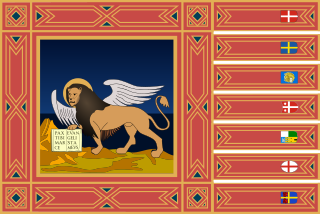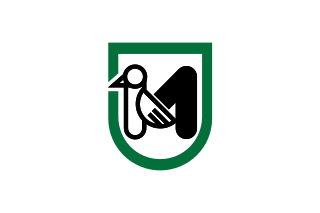 |
|---|
|
The Lazio regional election of 1980 took place on 8 June 1980.

 |
|---|
|
The Lazio regional election of 1980 took place on 8 June 1980.

Christian Democracy became the largest party, ahead of the Italian Communist Party. After the election Giulio Santarelli, the incumbent Socialist President, continued to govern at the head of a coalition consisting of Christian Democracy. In 1983 Santarelli was replaced by Bruno Landi, who was succeeded by Gabriele Panizzi in 1984.
 | |||
|---|---|---|---|
| Parties | votes | votes (%) | seats |
| Christian Democracy | 1,064,586 | 34.1 | 22 |
| Italian Communist Party | 959,401 | 30.7 | 19 |
| Italian Socialist Party | 332,026 | 10.6 | 6 |
| Italian Social Movement | 315,142 | 10.1 | 6 |
| Italian Democratic Socialist Party | 165,054 | 5.3 | 3 |
| Italian Republican Party | 116,585 | 3.7 | 2 |
| Italian Liberal Party | 83,453 | 2.7 | 1 |
| Proletarian Unity Party | 37,573 | 1.2 | 1 |
| Proletarian Democracy | 36,823 | 1.2 | - |
| Struggle List | 5,780 | 0.2 | - |
| Civic Alliance | 3,863 | 0.1 | - |
| Revolutionary Socialist League | 2,140 | 0.1 | - |
| Total | 3,122,426 | 100.0 | 60 |
Source: Ministry of the Interior

Christian Democracy was a Christian democratic political party in Italy. The DC was founded on 15 December 1943 in the Italian Social Republic as the ideal successor of the Italian People's Party, which had the same symbol, a crusader shield. As a Catholic-inspired, centrist, catch-all party comprising both centre-right and centre-left political factions, the DC played a dominant role in the politics of Italy for fifty years, and had been part of the government from soon after its inception until its final demise on 16 January 1994 amid the Tangentopoli scandals. Christian Democrats led the Italian government continuously from 1946 until 1981. The party was nicknamed the "White Whale" due to its huge organization and official color. During its time in government, the Italian Communist Party was the largest opposition party.

The Christian Democratic Appeal is a Christian-democratic political party in the Netherlands. It was originally formed in 1977 from a confederation of the Catholic People's Party, the Anti-Revolutionary Party and the Christian Historical Union; it has participated in all but three cabinets since it became a unitary party.

The National Action Party is a conservative political party in Mexico founded in 1939. The party is one of the four main political parties in Mexico, and, since the 1980s, has had success winning local, state, and national elections.
Christian democracy is a political ideology that emerged in 19th-century Europe under the influence of Catholic social teaching and neo-Calvinism.

The Party for Democracy, also known as For Democracy is a centre-left political party in Chile. It states to stand in the traditions of liberal progressivism. It was founded in December 1987 by Ricardo Lagos, who aimed at forming a legal social-democratic party, as the Socialist Party of Chile (PS) remained illegal at the time. The PPD continued to function after the defeat of Pinochet. Until 1997, double membership of PPD and the PS was allowed.
The Conservative Party or The Right is a liberal-conservative political party in Norway. It is the major party of the Norwegian centre-right, and was the leading party in government as part of the Solberg cabinet from 2013 to 2021. The current party leader is former Prime Minister Erna Solberg. The party is a member of the International Democrat Union and an associate member of the European People's Party.

The First Lubbers cabinet was the executive branch of the Dutch Government from 4 November 1982 until 14 July 1986. The cabinet was formed by the christian-democratic Christian Democratic Appeal (CDA) and the conservative-liberal People's Party for Freedom and Democracy (VVD) after the election of 1982. The cabinet was a right-wing coalition and had a substantial majority in the House of Representatives with Christian Democratic Leader Ruud Lubbers serving as Prime Minister. Prominent Liberal politician Gijs van Aardenne, a former Minister of Economic Affairs, served as Deputy Prime Minister and returned Minister of Economic Affairs.

The First Van Agt cabinet, also called the Van Agt–Wiegel cabinet was the executive branch of the Dutch Government from 19 December 1977 until 11 September 1981. The cabinet was formed by the christian-democratic Christian Democratic Appeal (CDA) and the conservative-liberal People's Party for Freedom and Democracy (VVD) after the election of 1977. The cabinet was a centre-right coalition and had a slim majority in the House of Representatives with Christian Democratic Leader Dries van Agt serving as Prime Minister. Liberal Leader Hans Wiegel served as Deputy Prime Minister and Minister of the Interior.

The Venetian regional election of 1980 took place on 8 June 1980.

The 1980 Calabrian regional election took place on 8 June 1980.

The Marche regional election of 1980 took place on 8 June 1980.

The regional election of 1975 took place on 15 June 1975. Ten new seats were added to the Regional Council following the 1971 census.

The Sardinian regional election of 1979 took place on 17 June 1979.

Clelio Darida was an Italian politician. He was mayor of Rome and minister of the Italian Republic.

The 1993 Italian local elections were held on 6 and 20 June, on 21 November and 5 December. It was the first time where citizens could vote both for the mayor and the city council, as for the provincial president and the provincial council.

The 1995 Italian local elections were held on 23 April and 7 May, on 19 November and 3 December.

The Christian Democratic Party was a political party in Portugal officially founded on 13 February 1975 and extinguished on 20 August 2004. The party never made it to parliament. The weekly publication Presença Democrática was published by the party.